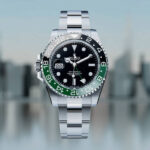Baseball, a sport rich in tradition and history, offers a wide array of equipment tailored to enhance player performance and adapt to individual preferences. Among these, the baseball bat stands out as a fundamental piece of gear every player must choose carefully. Understanding the various types and characteristics of baseball bats is crucial for players at all levels, from amateurs to professionals.
Material Types
Wooden Bats: Wooden bats are the classic choice in professional leagues and are mandatory in Major League Baseball (MLB). These bats are typically made from hardwoods like maple, ash, or birch. Maple is dense and offers great hitting power, whereas ash is lighter and provides flexibility. Birch, on the other hand, blends the characteristics of both maple and ash, offering a good balance of power and flexibility.
Aluminum Bats: Popular in amateur baseball due to their durability and lighter weight, aluminum bats allow for higher bat speed and are not prone to breaking like wooden bats. They tend to have a larger sweet spot, making them ideal for younger players looking to improve their game.
Composite Bats: Made from a mixture of graphite, fiberglass, and resin, composite bats are designed to reduce vibration and provide a greater sweet spot. They are lighter than aluminum bats, which helps players achieve greater swing speed and control.
Hybrid Bats: These bats combine a composite handle with an aluminum barrel. The design aims to provide the durability and performance of aluminum with the comfortable feel of composite materials in the handle.
Bat Specifications
Length and Weight: The choice of bat length and weight varies depending on the player’s age, strength, and height. A well-suited bat allows the player to swing comfortably, with maximum reach and power.
Barrel Diameter: This varies mostly in youth and collegiate leagues. Larger barrel diameters provide a bigger hitting surface but can increase the weight of the bat.
Grip: The grip on the handle can vary, with some bats featuring cushioned grips to reduce hand fatigue and vibration. Others may have a more traditional taped handle that provides better grip and feedback.
When choosing a bat, it’s important to consider these aspects to find a bat that best suits the player’s style and league requirements. For those looking to purchase bats, including the highly sought-after “bâtons de baseball Liquida Sport,” it’s advisable to consult with a knowledgeable salesperson or coach to make an informed decision.
Conclusion
Choosing the right baseball bat is a crucial decision for any player. By understanding the different types of bats and their characteristics, players can select a bat that not only conforms to league standards but also complements their playing style, ensuring optimal performance and enjoyment of the game.
 Kindness and Quiet Help Everyone Enjoy the Office Entertainment Site Together
Kindness and Quiet Help Everyone Enjoy the Office Entertainment Site Together  Machine Learning with Excel: A Beginner’s Guide
Machine Learning with Excel: A Beginner’s Guide  Transforming Singapore’s Transport System The Ultimate Convenience of Promenade Peak
Transforming Singapore’s Transport System The Ultimate Convenience of Promenade Peak  Using CAGR Calculator for Business Revenue Forecasts
Using CAGR Calculator for Business Revenue Forecasts  Chencharu Close Condo Mix Development The Ultimate Address for Modern City Living with Exceptional Transport Links and Future-Ready Amenities
Chencharu Close Condo Mix Development The Ultimate Address for Modern City Living with Exceptional Transport Links and Future-Ready Amenities  How to Prevent Aches and Pains from Everyday Activities
How to Prevent Aches and Pains from Everyday Activities  Expanding Horizons Enrichment Centers and Special Education Institutions Near The Sen Condo
Expanding Horizons Enrichment Centers and Special Education Institutions Near The Sen Condo  How Commercial Cleaning Enhances the Environment in Toledo’s Dental Labs
How Commercial Cleaning Enhances the Environment in Toledo’s Dental Labs  Here’s Why a UAE Trade License is the First Step to Business Success
Here’s Why a UAE Trade License is the First Step to Business Success 




